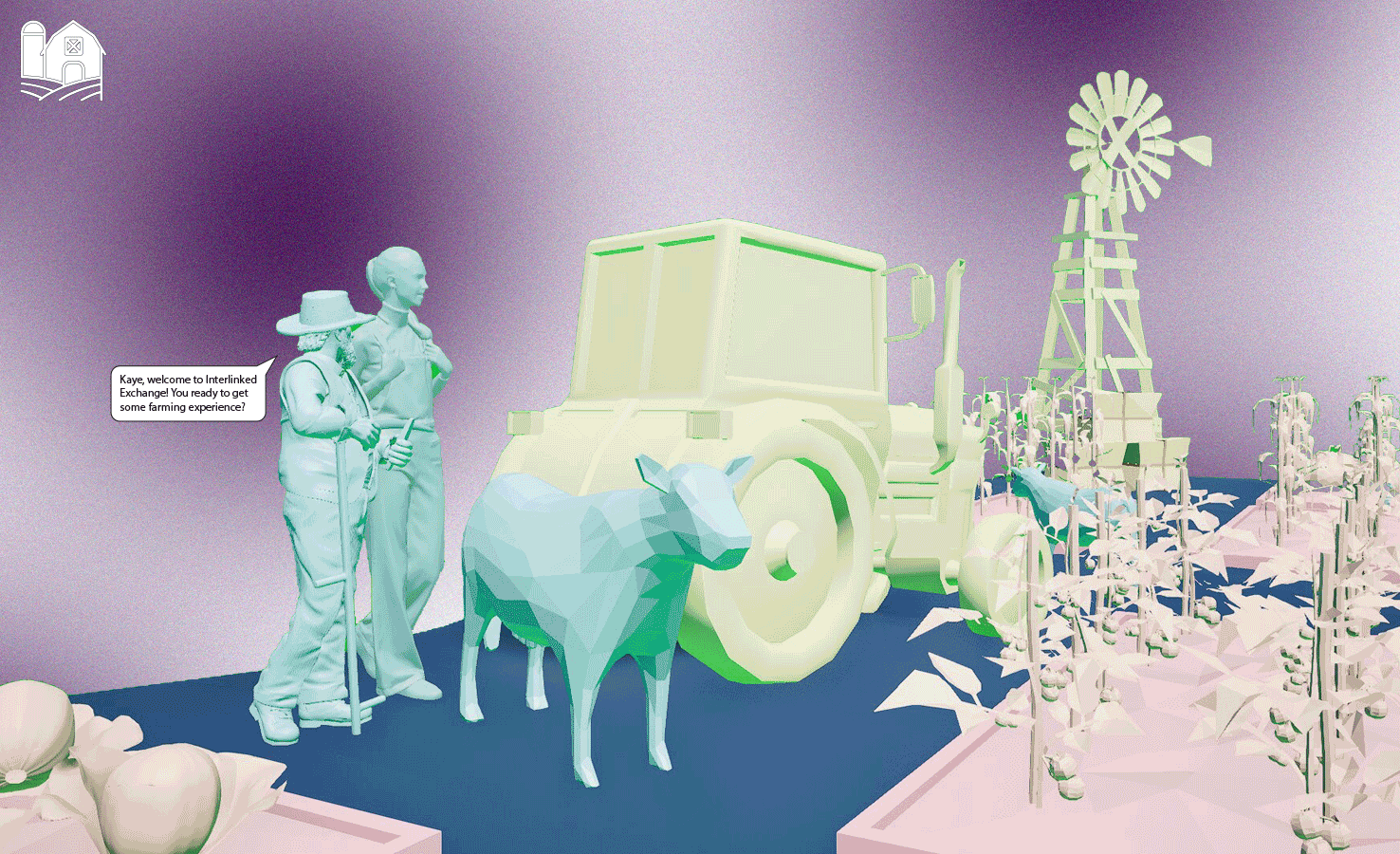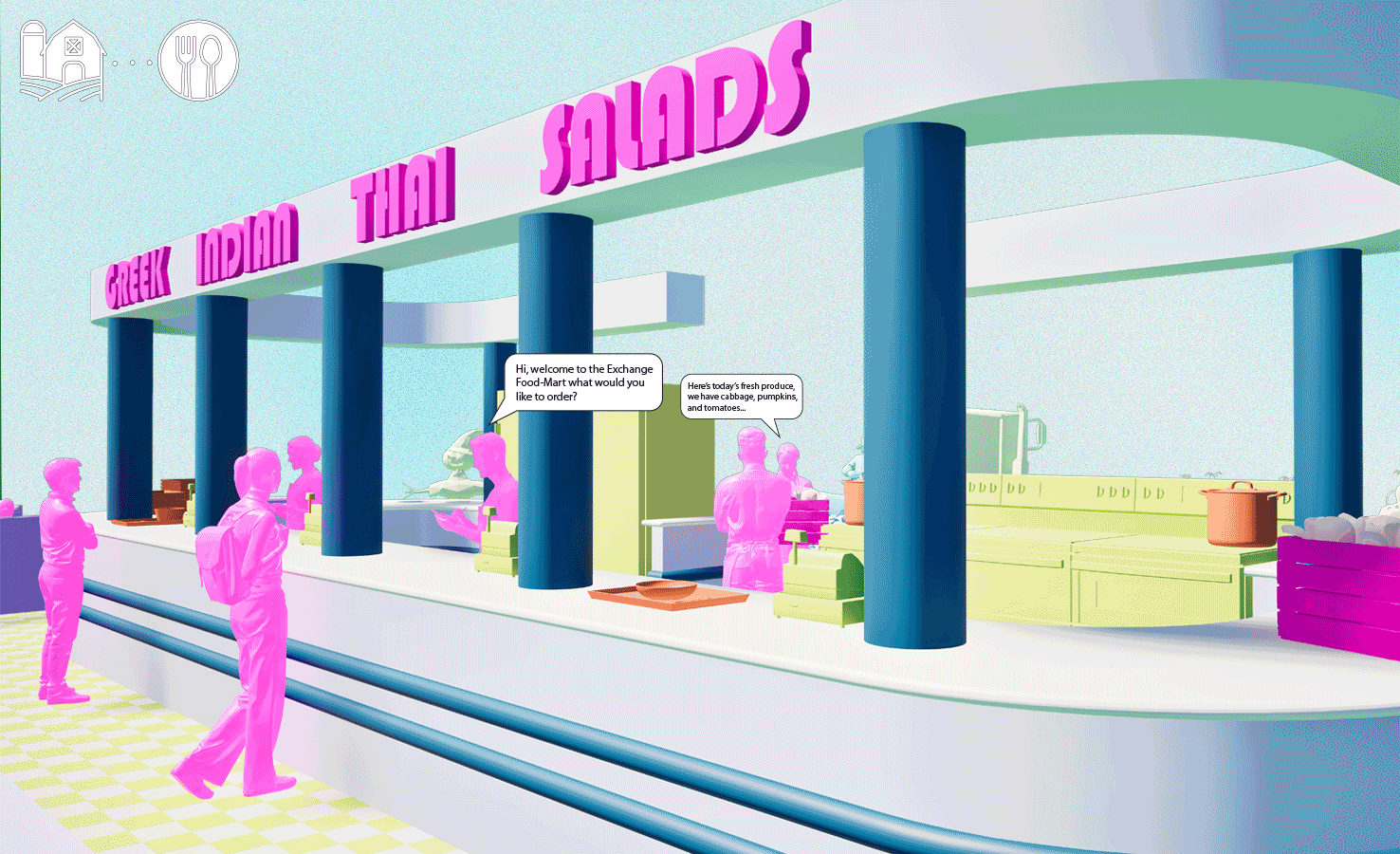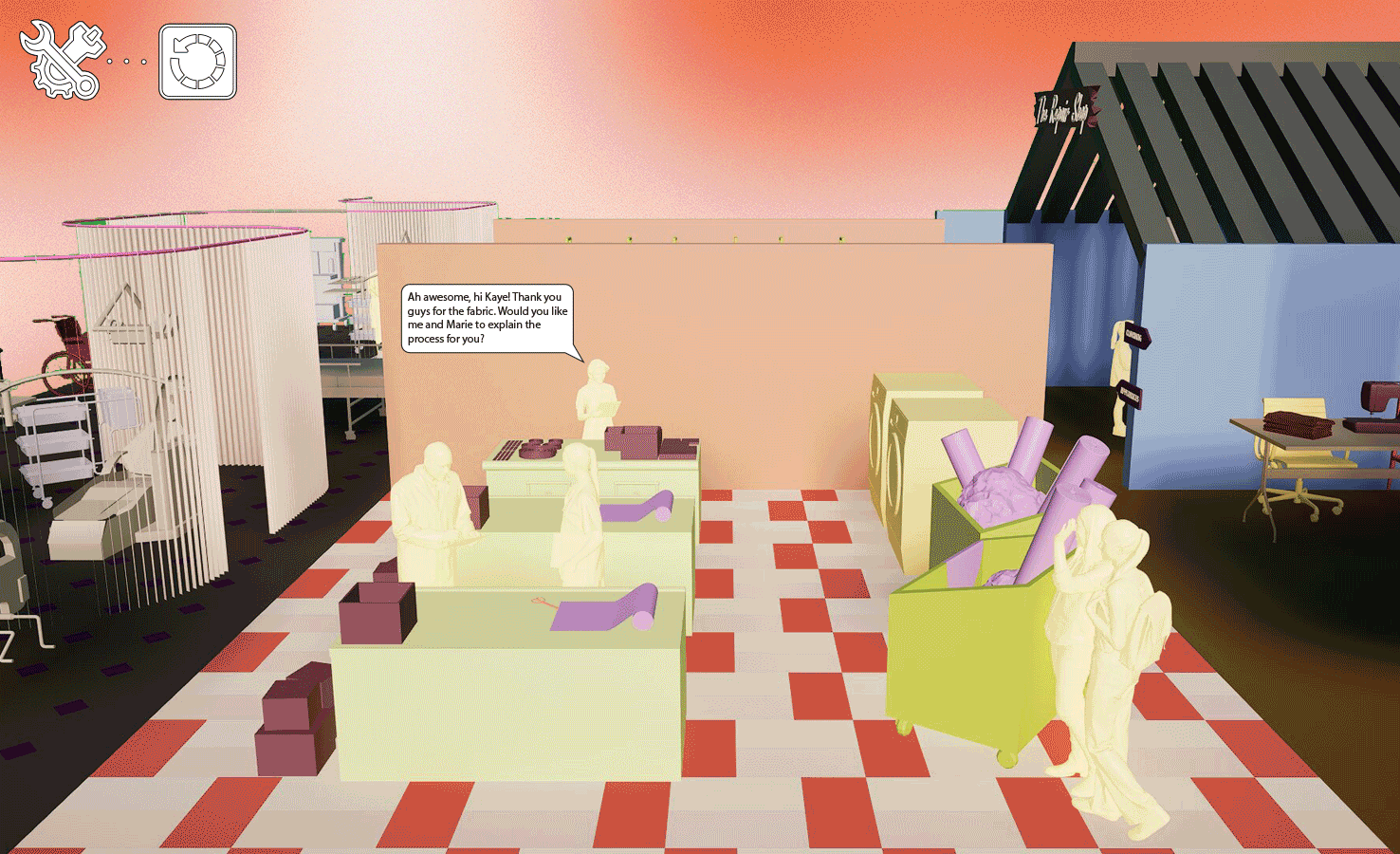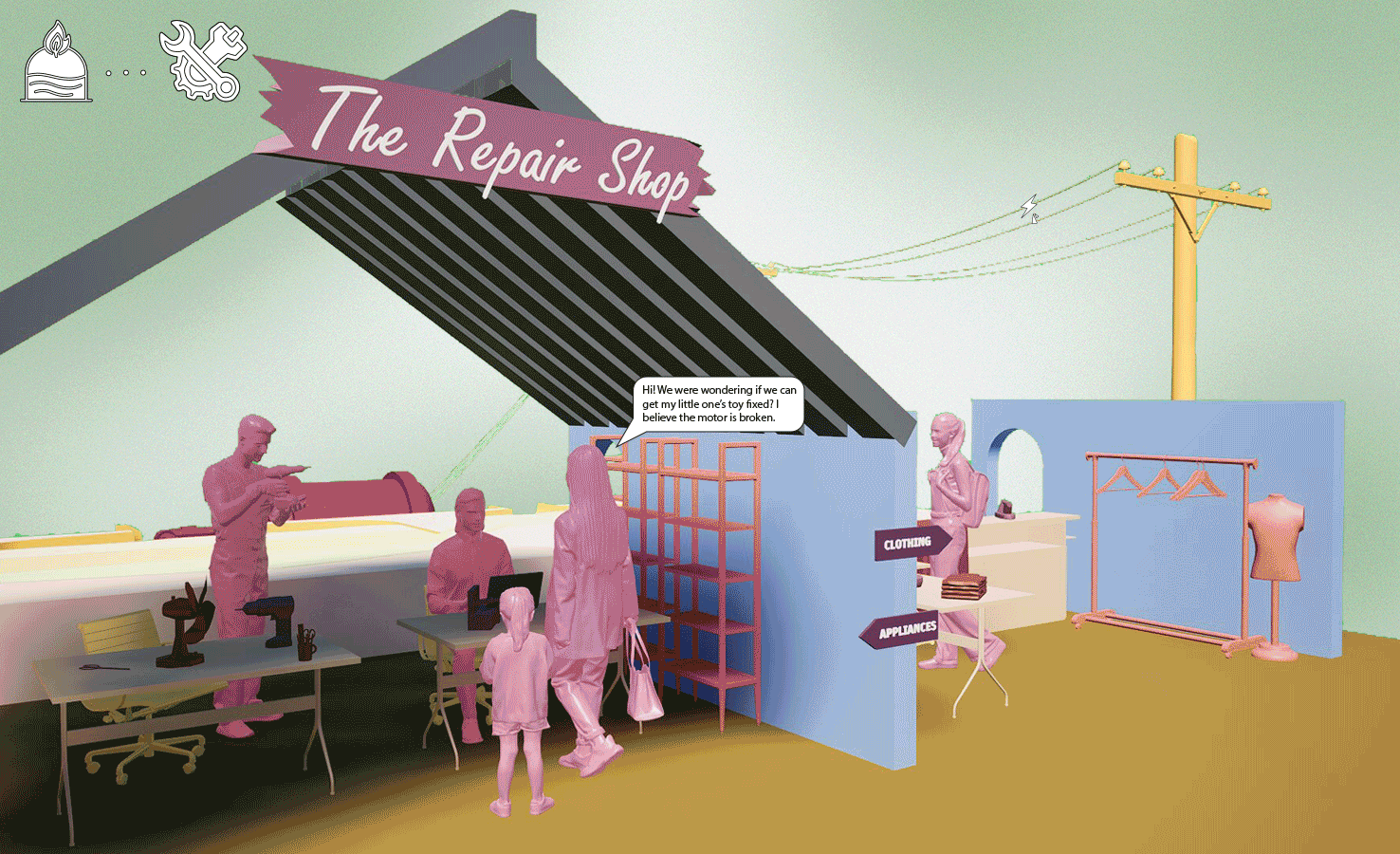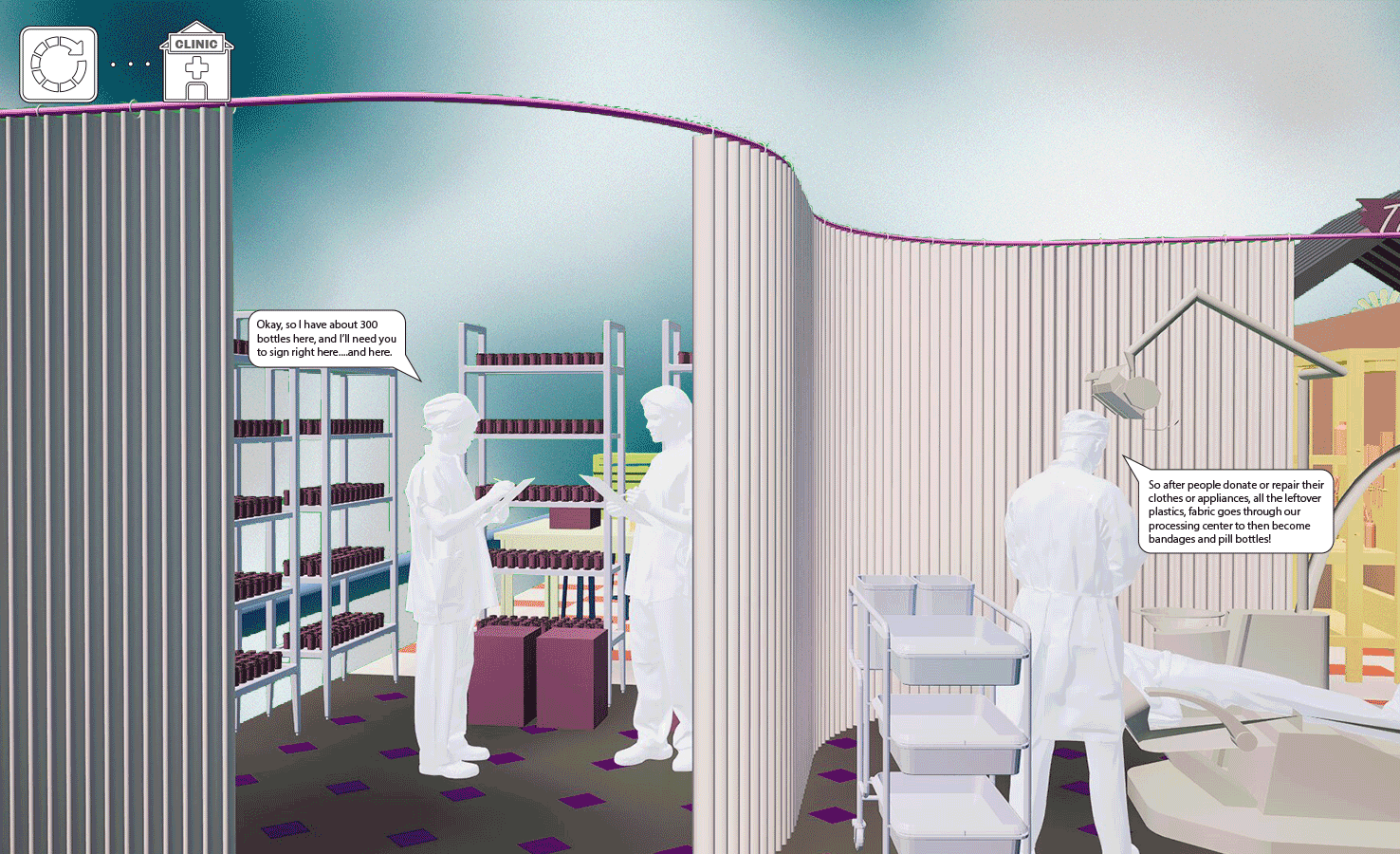Interlinked Exchange
By 2030, mounting pressure from the UN has compelled the U.S., a top global CO₂ emitter, to adopt aggressive climate action. With energy caps, transport mandates, and restricted commercial hours being reintroduced, the government looks for longer-term systems that do more than delay disaster. Meanwhile, the consequences of short-sighted development persist: abandoned Walmart stores across the country stand as symbols of extractive economies that devastated small towns, promoted globalized overproduction, and deepened dependence on delivery and fuel-intensive logistics.
Interlinked Exchange proposes a regenerative alternative. Positioned between major cities and rural regions, these hubs reclaim former “big box” sites to anchor a local, circular economy. Inspired by the concept of import replacement, each hub operates as a loop system: A farm provides food for an on-site community kitchen, while its waste fuels a biogas digester, generating energy for repair shops that restore clothing, electronics, and appliances, reducing landfill waste. Remaining materials are sanitized and converted into medical supplies, supporting a rotating specialty clinic that delivers critical care to underserved rural communities. Clean water is filtered throughout the system and cycled back to the farm, closing the loop.
This decentralized model tackles urban-rural disparity, builds ecological resilience, and reduces the carbon cost of long distance transportation and overproduction by replacing passive consumption with active systems of reuse, repair, and care. Rooted in circular design, Interlinked Exchange stitches local systems together to create an economy that’s equitable, adaptable, and built for the realities of climate change.


